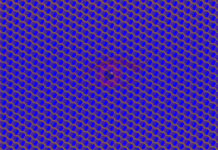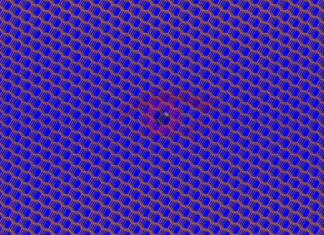Milvus is an open-source vector database built for embedding similarity search and analysis tasks in massive-scale applications. It is designed to efficiently store and retrieve high-dimensional vectors, enabling developers and data scientists to perform similarity searches, clustering, classification, recommendation systems, and other machine learning tasks. Milvus is engineered to handle large-scale vector data sets with billions of vectors and is optimized for performance, scalability, and ease of use. Leveraging cutting-edge technologies and algorithms, Milvus empowers organizations to build robust, real-time applications that require fast and accurate similarity search capabilities.
Milvus is a versatile and powerful tool for a wide range of applications, including e-commerce, recommendation systems, image and video analysis, natural language processing, genomic data analysis, and more. By providing efficient storage and retrieval of high-dimensional vectors, Milvus enables developers to build advanced machine learning models and applications that leverage similarity search and analysis. With its flexible and scalable architecture, Milvus can be deployed in various environments, including on-premises data centers, cloud platforms, and edge devices, making it suitable for both small-scale projects and large-scale production deployments.
Milvus employs state-of-the-art indexing and search algorithms to deliver fast and accurate similarity search capabilities. It supports a variety of indexing methods, including inverted multi-index, hierarchical Navigable Small World (NSW), Annoy, and more, allowing users to choose the most suitable indexing method based on their specific use case and requirements. Additionally, Milvus provides support for approximate nearest neighbor (ANN) search algorithms, such as HNSW and PQ, which enable users to perform fast similarity searches with sub-linear time complexity, making it ideal for real-time applications.
Milvus offers a user-friendly interface and comprehensive APIs that make it easy to integrate into existing workflows and applications. It provides SDKs and client libraries for popular programming languages, including Python, Java, Go, and C++, allowing developers to interact with Milvus using familiar tools and languages. Furthermore, Milvus supports a variety of data formats, including float32, float64, binary, and more, enabling users to store and retrieve vectors in the format that best suits their needs.
Milvus is designed for high availability and fault tolerance, with built-in features such as data replication, partitioning, and automatic failover. It supports horizontal scaling, allowing users to add or remove nodes dynamically to handle changes in workload and data volume. Additionally, Milvus provides monitoring and management tools that enable administrators to monitor the health and performance of the system in real-time, diagnose issues, and perform maintenance tasks as needed.
Milvus is fully open-source and released under the Apache License 2.0, allowing users to modify, distribute, and use the software freely. The project is actively maintained by a vibrant community of developers and contributors, who collaborate to improve and enhance the platform with new features, optimizations, and bug fixes. Milvus also provides extensive documentation, tutorials, and examples to help users get started with the platform and leverage its capabilities effectively.
Milvus is a powerful open-source vector database designed for similarity search and analysis tasks in large-scale applications. With its efficient storage and retrieval of high-dimensional vectors, support for a variety of indexing methods and search algorithms, user-friendly interface, scalability, and fault tolerance features, Milvus empowers developers and organizations to build advanced machine learning applications that require fast and accurate similarity search capabilities. As the demand for similarity search and analysis continues to grow across various industries, Milvus stands as a reliable and versatile solution for handling large-scale vector data sets and enabling real-time applications with high performance and scalability.
Milvus is engineered to address the challenges of storing and querying high-dimensional vector data efficiently. It provides a robust and scalable solution for applications that require similarity search, such as recommendation systems, content-based image retrieval, text search, and more. By leveraging Milvus, developers can build powerful and intelligent applications that can understand and analyze complex data patterns, leading to improved user experiences and insights. Whether it’s finding similar images in a large image database or recommending relevant products to customers based on their preferences, Milvus enables developers to unlock the full potential of their data and deliver impactful solutions to their users.
One of the key advantages of Milvus is its ability to handle large-scale vector data sets with billions of vectors efficiently. It achieves this scalability through a distributed architecture that allows users to deploy Milvus across multiple nodes and clusters, ensuring that the system can scale horizontally to meet growing data volumes and processing demands. Additionally, Milvus supports data partitioning and replication, which enables users to distribute data across multiple nodes for improved performance, fault tolerance, and availability. This distributed architecture ensures that Milvus can deliver fast and reliable performance even when handling massive data sets in production environments.
Another key feature of Milvus is its support for a wide range of indexing methods and search algorithms. These indexing methods are optimized for different types of data and query patterns, allowing users to choose the most suitable indexing method based on their specific use case and requirements. For example, Milvus supports inverted multi-index, which is well-suited for high-dimensional data with sparse distributions, hierarchical Navigable Small World (NSW) for efficient approximate nearest neighbor search, and Annoy for fast nearest neighbor search in low-dimensional spaces. By offering a variety of indexing methods, Milvus ensures that users can achieve fast and accurate similarity search performance across diverse data sets and query workloads.
Moreover, Milvus provides comprehensive monitoring and management tools that enable administrators to monitor the health and performance of the system in real-time, diagnose issues, and perform maintenance tasks as needed. These tools allow users to track key performance metrics, such as query throughput, latency, and resource utilization, and identify bottlenecks or performance issues that may arise. Additionally, Milvus provides support for integration with popular monitoring and logging systems, such as Prometheus and Grafana, allowing users to leverage existing monitoring infrastructure and workflows seamlessly.
Furthermore, Milvus is designed with security in mind, incorporating features such as encryption, access controls, and authentication mechanisms to protect sensitive data and prevent unauthorized access. It provides fine-grained access control mechanisms that allow administrators to define roles and permissions for users, ensuring that only authorized individuals have access to specific data and operations within the system. Additionally, Milvus supports data encryption at rest and in transit, ensuring that data remains secure both in storage and during transmission across the network. These security features help organizations comply with data privacy regulations and standards and maintain the confidentiality and integrity of their data.
In conclusion, Milvus is a powerful and versatile vector database that offers scalable, efficient, and reliable storage and retrieval of high-dimensional vector data. With its support for distributed architecture, diverse indexing methods, comprehensive monitoring and management tools, and robust security features, Milvus empowers organizations to build advanced machine learning applications that require fast and accurate similarity search capabilities. As the demand for similarity search and analysis continues to grow across various industries, Milvus stands as a reliable and efficient solution for handling large-scale vector data sets and enabling real-time applications with high performance and scalability.


















